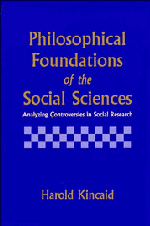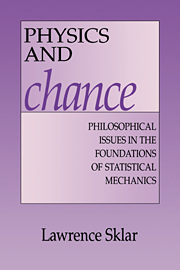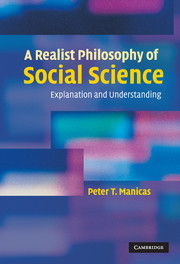Philosophical Foundations of the Social Sciences
This 1996 book defends the prospects for a science of society. It argues that behind the diverse methods of the natural sciences lies a common core of scientific rationality that the social sciences can and sometimes do achieve. It also argues that good social science must be in part about large-scale social structures and processes and thus that methodological individualism is misguided. These theses are supported by a detailed discussion of actual social research, including theories of agrarian revolution, organizational ecology, social theories of depression, and supply-demand explanations in economics. Professor Kincaid provides a general picture of explanation and confirmation in the social sciences and discusses the nature of scientific rationality, functional explanation, optimality arguments, meaning and interpretation, the place of microfoundations in social explanation, the status of neo-classical economics, the role of idealizations and non-experimental evidence, and other specific controversies.
- Surveys main issues in philosophy of the social sciences in non-technical fashion
- Looks in detail at actual social research
- Can be used in philosophy of social science courses across the humanities and social sciences
Reviews & endorsements
"...Kincaid convincingly argues that both the natural sciences and the social sciences have a common core of scientific rationality based on naturalism and holism....This work is highly recommended to philosophers of science, social scientists, and graduate students in philosophy or in any of the social sciences." Choice
"...well argued and necessary in arguing in many cases what should have been obvious for at least a century, but is still a minority view in contemporary discourse." Aviezer Tucker, Dialogue
Product details
November 1995Paperback
9780521558914
304 pages
229 × 152 × 17 mm
0.45kg
9 b/w illus.
Available
Table of Contents
- 1. Issues and arguments
- 2. Challenges to scientific rationality
- 3. Causes, confirmation, and explanation
- 4. Functionalism defended
- 5. The failures of individualism
- 6. A science of interpretation?
- 7. Economics: a test case
- 8. Problems and prospects.









